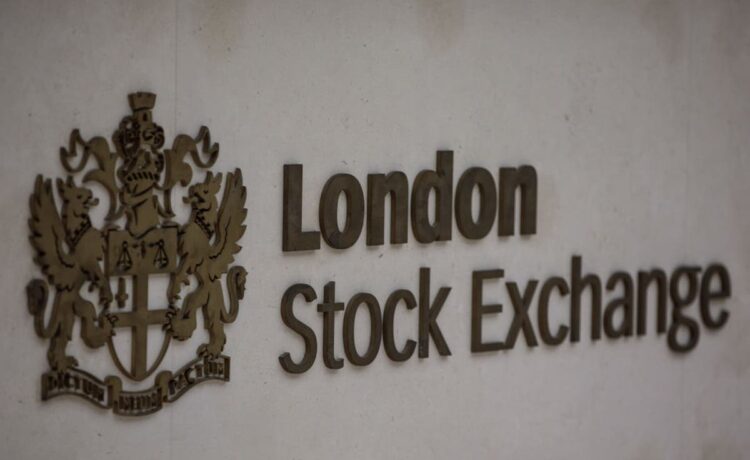Your support helps us to tell the story
From reproductive rights to climate change to Big Tech, The Independent is on the ground when the story is developing. Whether it’s investigating the financials of Elon Musk’s pro-Trump PAC or producing our latest documentary, ‘The A Word’, which shines a light on the American women fighting for reproductive rights, we know how important it is to parse out the facts from the messaging.
At such a critical moment in US history, we need reporters on the ground. Your donation allows us to keep sending journalists to speak to both sides of the story.
The Independent is trusted by Americans across the entire political spectrum. And unlike many other quality news outlets, we choose not to lock Americans out of our reporting and analysis with paywalls. We believe quality journalism should be available to everyone, paid for by those who can afford it.
Your support makes all the difference.
Last year was one of the quietest on record for the London Stock Exchange, which saw the largest outflow of companies since the global financial crisis, stark new analysis shows.
Takeaway giant Just Eat, Paddy Power owner Flutter, travel group Tui, and equipment rental firm Ashtead were among those to announce plans to ditch their main UK listing.
A total of 88 companies delisted or transferred their primary listing from the primary market in the UK, The London Stock Exchange (LSE), which is the highest tally on record since 2009, according to data from auditing giant EY. A number of these firms said declining liquidity and lower valuations were key reasons for moving away from London, particularly to the US which offers more capital and trading activity, EY said.
Betting giant Flutter Entertainment switched its primary listing to New York, where it said it could access the “world’s deepest and most liquid capital markets”. Just Eat Takeaway abandoned its listing on the LSE altogether, citing the “administrative burden, complexity and costs” associated with keeping its shares in London as one of the reasons to quit.
Other companies such as Watches of Switzerland faced pressure from activist investors to swap their main stock market listing to the US.
The boss of oil giant BP, meanwhile, suggested last year that a move away from the UK was “not on the agenda”, with Murray Auchincloss insisting valuation gaps between UK and US companies could be closed by “safe performance, quarter in, quarter out”, along with share buybacks, dividend increases and cashflow growth.
A flurry of companies exiting or moving their primary listing to foreign markets was compounded by a shortage of companies launching their shares in 2024.
There were a total of 18 new listings, known as initial public offerings (IPOs), in London last year, EY found.
This was the lowest volume of listings since EY started recording the data in 2010, and five times less than the number that delisted or transferred elsewhere.
The launch of French TV and production giant Canal+ in December nevertheless gave London’s stock market a major boost as the year drew to a close, raising £2.6 billion on its market debut.

This was the largest listing since 2022 and brought the total value of proceeds raised over the year to £3.4 billion – triple the amount raised from 23 companies in 2023.
Scott McCubbin, EY’s IPO lead for the UK and Ireland, said it had been a “quiet year” for the LSE, adding: “Ongoing geopolitical instability, slow economic growth and a diminished appetite for domestic equities among pension funds have impacted valuations and liquidity.
“We also saw the largest outflow of companies from the main market since the global financial crisis as companies sought access to a deeper pool of investors and the prospect of improved liquidity on other exchanges.”
“But as we enter 2025, there are reasons for cautious optimism,” Mr McCubbin went on.
“A stabilised domestic policy environment post-election, robust pipeline of deals, and listings reform are creating opportunities to restore London’s competitiveness, which could drive a rebound in activity in the first half of 2025.
“Businesses eyeing IPOs will be closely watching the market to time their public offerings effectively.”
Across global markets, there were 1,215 deals in 2024, raising 121.2 billion US dollars (£97.8 billion), slightly lower in terms of both volume and value than in 2023.
For the first time, India rose to the top position globally with the largest number of IPOs, while the US raised the most in proceeds for another year, EY’s data found.
A spokesman for the Treasury said: “Economic growth and driving more investment in the UK is our number one mission.
“Recent IPOs and listing announcements by high-growth companies like Raspberry Pi and Canal+ demonstrate confidence in our capital markets.
“We want to continue attracting exciting businesses to the UK. That’s why we are creating pension megafunds to unlock billions of pounds of potential investment for businesses, as well as backing the largest overhaul of UK listings rules in decades.”
Reforms last year included scrapping rules that forced a shareholder vote on transactions between UK-listed companies and related parties. This hurdle was partly blamed for Cambridge-based chip firm Arm’s decision to list in the US over London in 2023 by backer SoftBank.













